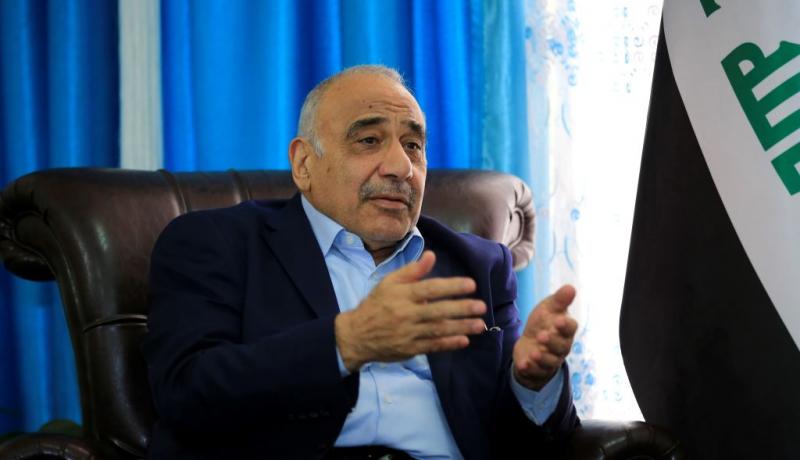Tensions have again flared between the US and Iran. The Trump administration’s withdrawal from the Iran nuclear deal, followed by Tehran’s warnings of resuming its nuclear programme, have revived a crisis that spans several decades.
Within the Trump administration, influential leaders - including National Security Adviser John Bolton and Secretary of State Mike Pompeo - seem to be steering the US into conflict with Iran.
This conflict has never been a direct confrontation, instead mainly featuring in countries across the Middle East. Iraq has been the most cherished prize for both sides. Recently citing an increased threat, the US evacuated all non-essential staff from Iraq. Then, a rocket suspected to have been fired by a pro-Iranian militia landed near the US embassy in the Green Zone; President Donald Trump subsequently warned that any escalation would be the end of Iran.
Last week, Iranian Foreign Minister Mohammad Javad Zarif visited Baghdad and met the Iraqi leadership. The trip came a few weeks after his US counterpart, Pompeo, visited Baghdad. Both sides want to maintain their influence while making the other less relevant.
Iraq’s new government, elected less than a year after the country’s declaration of victory over Islamic State of Iraq and Syria (ISIS), fears it may again become a hopeless playground. Iraqi leaders across the spectrum, both pro- and anti-Iran, do not want to see their country sucked into this conflict. For many years, Iraqi leaders have tried to move away from simply being a puppet for Iran or the US.
Instead, Baghdad’s leadership wants to mediate this conflict. Several leaders told me that they have been passing notes between Tehran and Washington, saying their access to both sides puts them in an ideal position to mediate the decades-long spat.
But can the Iraqi government move from mere note-passers to potential mediators in this conflict, or is Iraq again destined to remain their playground?
Recently, sources say Prime Minister Adil Abdul-Mahdi formed a mediating committee led by Foreign Minister Mohammed al-Hakim. The team reportedly includes intelligence chief Mustafa al-Kadhimi and National Security Council director Faleh al-Fayadh.
Points of leverage
If Iraq is to mediate between the US and Iran, it will need to identify points of leverage to earn its seat at the table. Both Washington and Iran view Iraq as a top priority. Can stability work as a potential bargaining chip? Until recently, both Tehran and Washington fought on the same side to defeat IS, but recent tensions threaten this equilibrium in Iraq.
Neither Tehran nor Washington is omnipotent or omniscient in Iraq. Both make mistakes; the swift rise of ISIS in 2014 was a serious mistake for both sides, and they both need Iraq to remain stable. Iraqi leaders can remind both sides of the consequences when Iraq’s stability is threatened.
Iraq also needs to work with regional and international actors who do not want to see the US-Iran dispute escalate. Leaders in many European capitals, from London to Paris, are scrambling to figure out how to keep the crisis from escalating further. Apart from certain individuals in Washington and Tehran, it is in no one’s interests to see the crisis intensify. Many of these capitals can thus support Iraq to engage with both sides and quell the dispute.
Yet, the idea that Iraq can serve as a mediator needs a reality check. The country is just re-emerging from a brutal war against ISIS, with many challenges to rebuilding on the horizon.
The lack of a unified and independent foreign policy threatens Iraq’s potential to become an independent, honest broker. Some leaders in Baghdad, such as those affiliated with certain Popular Mobilization Unit groups, share strong relations with Iran and push pro-Iran policies. In recent months, this camp has worked to pass a law in parliament removing US troops from Iraqi soil. Other lawmakers warn that Iran is the greatest threat to Iraq’s stability. Clearly, the Iraqi government is not a neutral player in this dispute.
Getting the house in order
Iraq also needs to get its own house in order first. The Iraqi state is weak and susceptible. The Iraqi government still lacks a minister of interior and a minister of defence. There is not a single woman in the new cabinet. Many Iraqis are disillusioned, and seek to bring down the established elite; they continue to boycott the political process. Domestic politics are a major challenge to rebuilding Iraq after IS.
Only if the Iraqi government can push through independent policies, free from Iranian or US interference, and sort out its dire domestic situation, can it become a potential mediator in the dispute. Otherwise, it will remain the playground.
Baghdad’s leadership has focused on foreign policy, travelling to regional and foreign capitals to negotiate. Unable to navigate domestic politics, Baghdad has turned its focus to the international sphere - but if leaders remain unable to get a grip on the country’s internal politics, Iraq will be unable to play the role of mediator.
Iraqi leaders claim to have the ear of both sides in the spat, but Baghdad needs to unify its foreign policy and fix its domestic politics before it can realistically mediate between two powers like Washington and Tehran.


 RSS Feed
RSS Feed